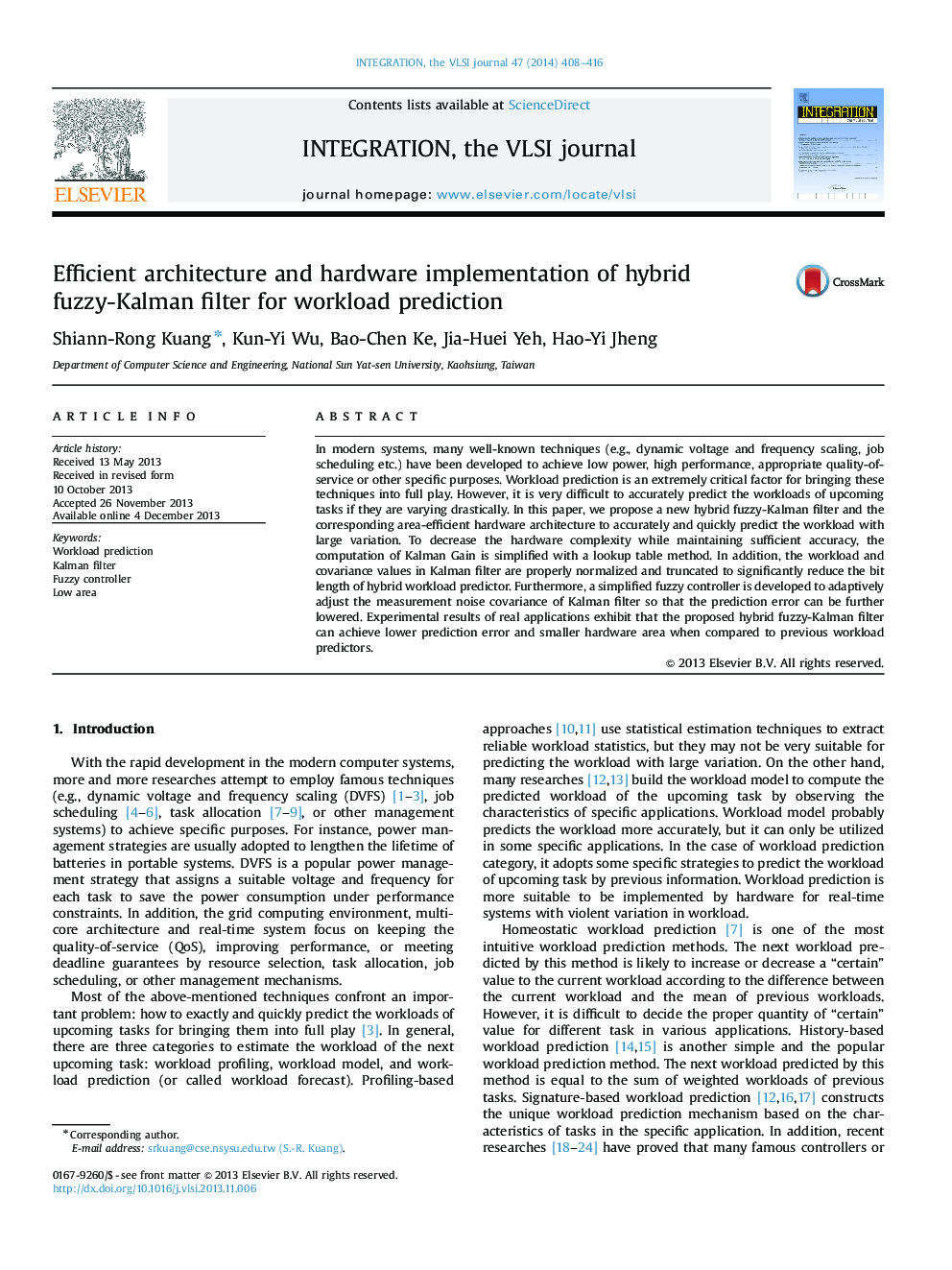| Article ID | Journal | Published Year | Pages | File Type |
|---|---|---|---|---|
| 540995 | Integration, the VLSI Journal | 2014 | 9 Pages |
•An area-efficient hybrid fuzzy-Kalman filter is proposed for workload prediction.•A simplified fuzzy controller is developed to reduce the prediction error.•The division operation of Kalman Gain is replaced with a lookup table method.•Our predictor can dynamically process the workload with arbitrary bit-length.
In modern systems, many well-known techniques (e.g., dynamic voltage and frequency scaling, job scheduling etc.) have been developed to achieve low power, high performance, appropriate quality-of-service or other specific purposes. Workload prediction is an extremely critical factor for bringing these techniques into full play. However, it is very difficult to accurately predict the workloads of upcoming tasks if they are varying drastically. In this paper, we propose a new hybrid fuzzy-Kalman filter and the corresponding area-efficient hardware architecture to accurately and quickly predict the workload with large variation. To decrease the hardware complexity while maintaining sufficient accuracy, the computation of Kalman Gain is simplified with a lookup table method. In addition, the workload and covariance values in Kalman filter are properly normalized and truncated to significantly reduce the bit length of hybrid workload predictor. Furthermore, a simplified fuzzy controller is developed to adaptively adjust the measurement noise covariance of Kalman filter so that the prediction error can be further lowered. Experimental results of real applications exhibit that the proposed hybrid fuzzy-Kalman filter can achieve lower prediction error and smaller hardware area when compared to previous workload predictors.
